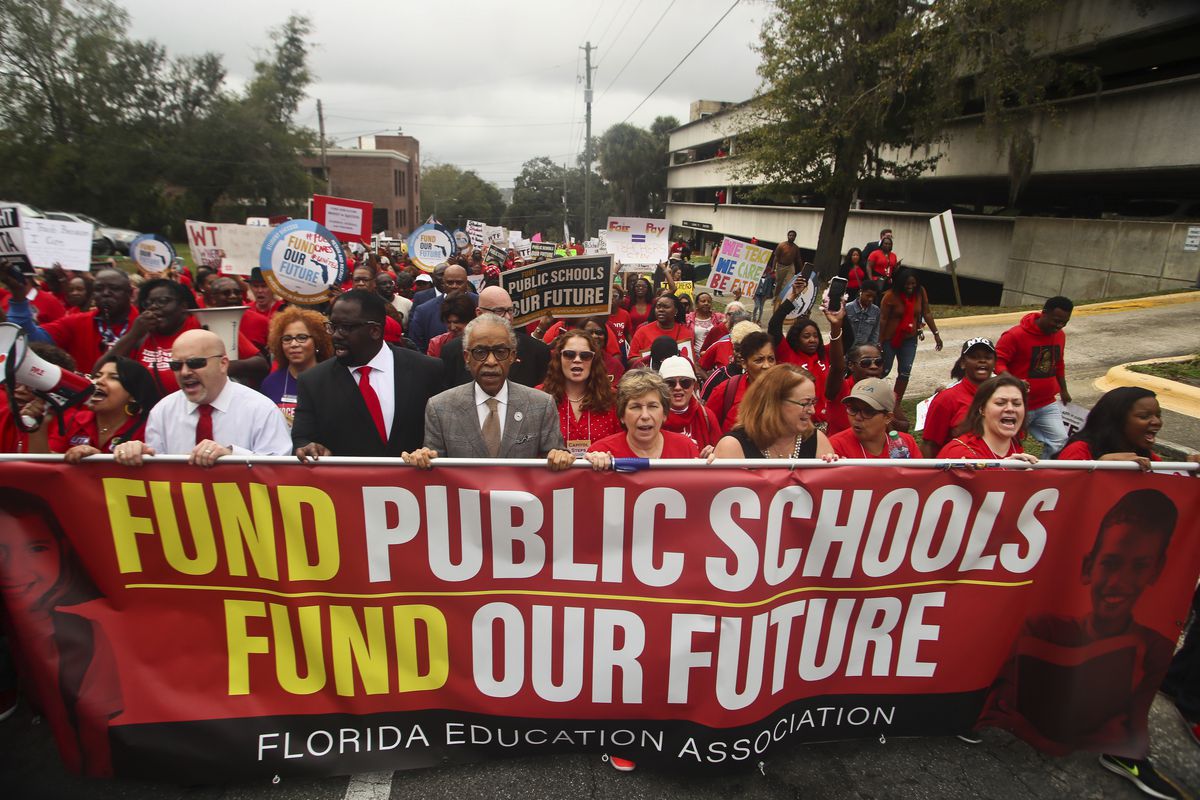Florida teachers march for the education students deserve

On Jan. 13, thousands of Florida teachers and school employees took to the streets of Tallahassee to march for better working and teaching conditions. The march, organized by the Florida Education Association, comes on the heels of long-standing difficulties in recruiting and retaining qualified teachers in the Sunshine State.
At the same time, with the start of the spring semester, thousands of Florida high school seniors are gearing up for college admissions season. Many will find themselves without the skills they need to succeed in higher education, in part because of the system they are preparing to exit.
These failures are no accident. They are caused by deliberate policy choices from our state government.
Despite a growing population, Florida schools are operating on a steep pay cut. A 2019 analysis by the Center on Budget and Policy Priorities found that Florida school funding fell in the Great Recession and hasn’t recovered since. Adjusted for inflation, our state spends 23 percent less on schools today than it did in 2007.
Less money for schools means larger class sizes and lower teacher salaries, even in large cities like Miami, Orlando and Tampa, where the cost of living is rising and large numbers of students live in poverty. True to form, Florida ranks No. 46 among states for teacher pay, according to a 2019 report by the National Education Association.
The sum-total of these problems is poor teacher morale and a substantial shortage of qualified educators: last year, there were over 2,000 teacher vacancies in the state.
Each of these difficulties have knock-on effects for colleges, universities and technical schools, where many young Floridians are left unprepared for postsecondary education. Only a third of Florida high-school graduates in the class of 2019 were considered “college-ready” by the College Board in both English and math, based on their SAT scores. Well over a third (38 percent) failed to meet benchmarks in either subject.
Florida colleges and universities have been experimenting with ways to bridge the gap between high school and college for struggling students. In 2014, the state overhauled its remedial course system, allowing students entering state colleges to take “gateway” courses without remedial classes in core subjects.
Universities, meanwhile, have tested their own strategies to keep students on track. USF, for instance, uses data on grades and attendance to reach out to struggling students. If performance slips or participation drops, USF sends counselors, professors or resident assistants to reach out and connect them with resources. These efforts have helped boost USF’s graduation rate and narrow achievement gaps between white students and students of color.
Nevertheless, it makes little sense that higher education should pick up the slack for K-12 schools. Nobody deserves such a scenario, not teachers, not professors and certainly not students. After years of bullying from Tallahassee, Florida educators are beginning to speak out on what it would take to fix it. Pay our teachers fair salaries. End needless high-stakes testing. Invest in our students and in our future.
Nathaniel Sweet is a senior studying political science.






